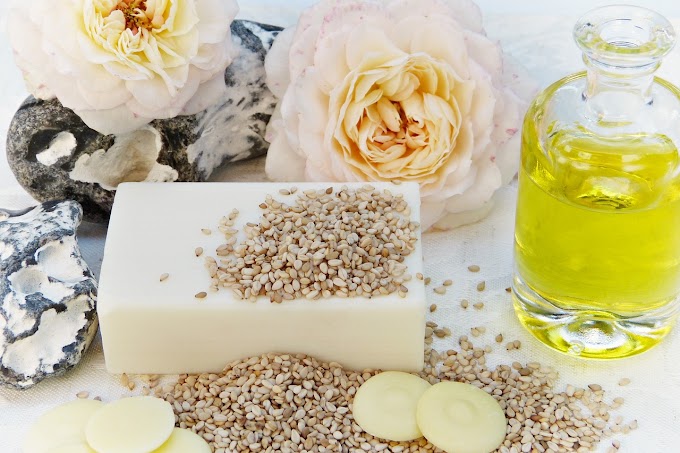Introduction
The timeless quest for flawless, radiant skin spans across cultures and generations, emphasizing the need for a thoughtful and effective skincare routine. As the body's largest organ, the skin serves as a vital protective barrier against external elements, highlighting the importance of investing in skincare. This comprehensive guide delves into the intricacies of skincare, exploring the scientific foundations, the significance of a consistent regimen, and the key ingredients that contribute to achieving and maintaining healthy, glowing skin.Understanding the Science of Skin
To fully appreciate the significance of skincare, a foundational understanding of the skin's basic science is essential. The skin comprises three main layers: the epidermis, dermis, and subcutaneous tissue. The outermost layer, the epidermis, acts as a shield against environmental factors and is responsible for forming the skin's natural barrier. The dermis, situated beneath the epidermis, contains collagen and elastin, providing structural support and elasticity. Finally, the subcutaneous tissue houses fat cells, regulating body temperature and cushioning internal organs.Skin Types and Common Issues
Embarking on a skincare journey necessitates the identification of one's skin type, including oily, dry, combination, and sensitive. Each type requires a unique approach to address specific concerns. Oily skin produces excess sebum, leading to acne and blemishes, while dry skin may result in flakiness and tightness. Combination skin features oily and dry areas, while sensitive skin is prone to redness, irritation, and allergic reactions.In addition to skin types, various factors contribute to common skin issues, including environmental factors such as pollution and UV rays, hormonal fluctuations, stress, and inadequate skin care. Recognizing these factors enables a targeted and holistic approach to skincare.
The Importance of a Consistent Skincare Routine
Consistency emerges as a cornerstone in skincare, crucial for maintaining the health and vitality of the skin. A typical skincare regimen involves cleansing, toning, moisturizing, and protection against UV rays. Cleansing removes impurities, preparing the skin for subsequent steps. Toning balances the skin's pH levels, moisturizing maintains hydration, and UV protection shields against sun damage, preventing premature aging and reducing the risk of skin cancer.Beyond the basics, incorporating specialized treatments such as exfoliation and masks enhances the efficacy of a skincare routine. Exfoliation promotes cell turnover and a brighter complexion by removing dead skin cells. Masks, ranging from hydrating to clay-based, offer targeted solutions for various skin concerns.
Key Ingredients for Healthy Skin
Navigating the inundated skincare industry requires an understanding of key ingredients to make informed choices aligned with skincare goals.Vitamins: Vitamin C brightens the skin, evens out tone, and promotes collagen synthesis. Vitamin E nourishes and protects, reducing the effects of sun damage.
Retinoids: Retinol, a derivative of vitamin A, boasts anti-aging properties, promoting collagen production and reducing fine lines and wrinkles.
Hyaluronic Acid: A hydrating powerhouse that retains water, keeping the skin plump and moisturized.
Alpha Hydroxy Acids (AHAs) and Beta Hydroxy Acids (BHAs): AHAs (e.g., glycolic acid) exfoliate the skin's surface, improving texture and addressing hyperpigmentation. BHAs (e.g., salicylic acid) penetrate oil glands, effective for oily and acne-prone skin.
Peptides: Building blocks of proteins, peptides support collagen production, promoting firmness and elasticity.
Niacinamide: Also known as vitamin B3, niacinamide regulates oil production, reduces redness, and strengthens the skin barrier.
Ceramides: Lipids that help maintain the skin's barrier function, preventing moisture loss and enhancing hydration.

Customizing Your Skincare Routine
Creating a personalized skincare routine involves identifying individual skin concerns and selecting products with appropriate ingredients. Introduce new products gradually, monitor skin reactions, and regularly reassess the routine considering factors like seasonal changes and age-related shifts.Furthermore, lifestyle factors play a pivotal role in skin health. Adequate hydration, a balanced diet rich in antioxidants, sufficient sleep, and stress management contribute to overall well-being, positively impacting the skin.
Navigating Trends and Myths
The ever-evolving skincare landscape introduces new trends and products regularly. While innovation is welcome, it's crucial to approach trends with discernment, as the "less is more" philosophy often holds true. Excessive product layering can overwhelm the skin, leading to adverse reactions.Dispelling common myths is equally important. For example, the misconception that oily skin doesn't require moisturization can exacerbate oiliness. Additionally, assuming natural ingredients are always safe can be misleading, as some may cause irritation or allergies.
Addressing Specific Skin Concerns
Tailoring approaches to specific skin concerns is essential:Acne: Incorporate products with salicylic acid or benzoyl peroxide to control acne. Avoid picking at blemishes to prevent scarring.
Hyperpigmentation: Use products with ingredients like vitamin C, niacinamide, and alpha arbutin to lighten dark spots. Apply sunscreen diligently to prevent further pigmentation.
Dry Skin: Choose hydrating products with ingredients like hyaluronic acid and ceramides. Limit hot showers and use a humidifier to combat dryness.
Aging: Prioritize products with retinol, peptides, and antioxidants to target fine lines and wrinkles. Consider professional treatments like chemical peels and microdermabrasion.
Sensitive Skin: Opt for fragrance-free and hypoallergenic products to minimize irritation. Patch-test new products and introduce them gradually.
Professional Interventions
While an at-home skincare routine forms the foundation of healthy skin, professional interventions can provide targeted solutions. Dermatologists offer treatments like chemical peels, laser therapy, and injectables tailored to individual needs, allowing for a comprehensive assessment and personalized recommendations.The Future of Skincare
Advancements in technology continue to drive innovation in the skincare industry. Personalized skincare regimens based on genetic factors and the integration of artificial intelligence in product development present exciting possibilities. Additionally, sustainable and eco-friendly practices have gained prominence, reflecting a growing awareness of the beauty industry's environmental impact.Conclusion
Skincare is a dynamic and personal journey, requiring a combination of science, consistency, and self-awareness. Understanding your skin's unique needs, embracing a holistic approach to well-being, and staying informed about effective ingredients empower you to make choices that contribute to a radiant complexion.FAQs
It is recommended to cleanse your skin twice a day, in the morning and evening, to remove impurities and prepare your skin for subsequent skincare steps.
Do I really need to wear sunscreen every day, even on cloudy days?
Yes, sunscreen is essential every day, regardless of the weather. UV rays can penetrate clouds, leading to skin damage and premature aging.
Can I use multiple skincare products at once?
While layering products is common, it's crucial to introduce new products gradually to monitor how your skin reacts. Overloading your skin with too many products can lead to irritation.
Is natural skincare always better?
Not necessarily. While some natural ingredients have proven benefits, not all are suitable for every skin type. It's important to consider the specific needs of your skin and choose products accordingly.
What is the right order for applying skincare products?
A general rule is to apply products in order of thickness, from the thinnest to the thickest consistency. For example, start with serums, followed by moisturizers, and finish with sunscreen.
How long does it take to see results from a new skincare routine?
Results vary based on individual factors, but it's common to see noticeable improvements within a few weeks to a couple of months. Consistency is key for long-term benefits.
Can I skip moisturizer if my skin is oily?
No, even oily skin needs hydration. Opt for oil-free or gel-based moisturizers to maintain a balance and prevent the skin from producing excess oil.
Are expensive skincare products more effective?
The effectiveness of a product depends on its formulation and ingredients, not necessarily its price. Some affordable products can be highly effective, while certain luxury brands may not suit everyone's skin.
How can I address dark circles under my eyes?
At what age should I start using anti-aging products?
It's never too early to start focusing on preventive skin care. In your mid-20s, incorporating products with antioxidants and retinol can help maintain youthful skin and prevent premature aging.
Remember, individual skincare needs can vary, and it's advisable to consult with a dermatologist for personalized advice based on your specific skin concerns and goals.







